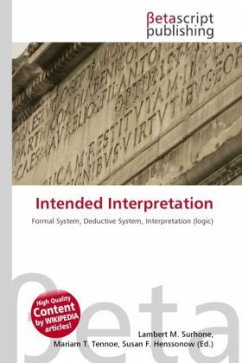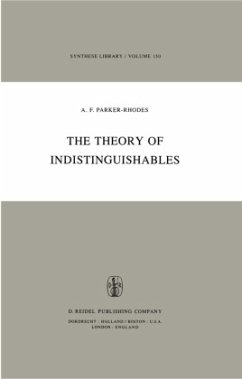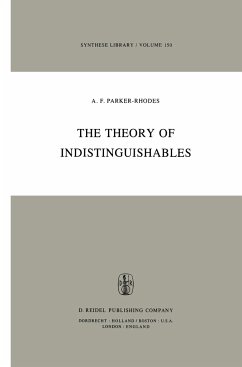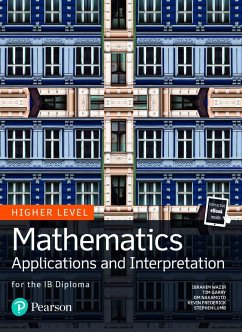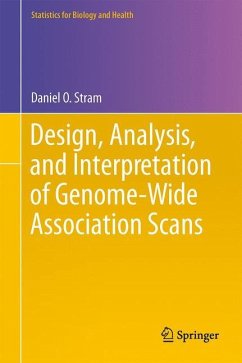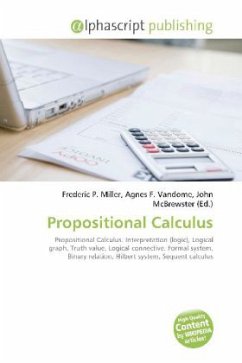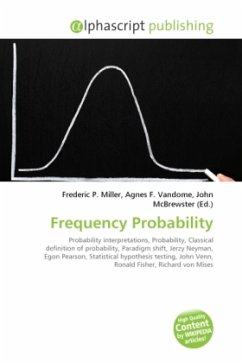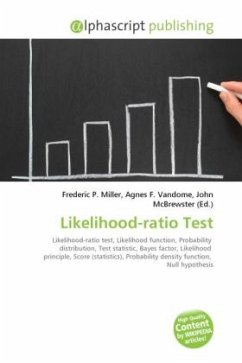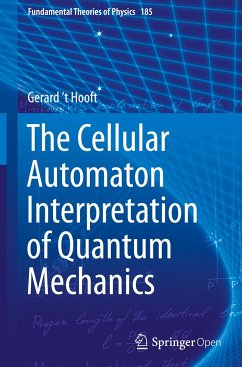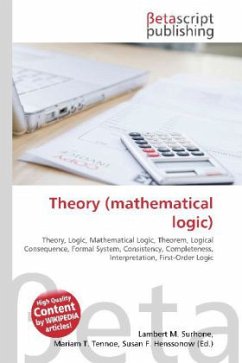
Theory (mathematical logic)
Versandkostenfrei!
Versandfertig in 6-10 Tagen
23,99 €
inkl. MwSt.

PAYBACK Punkte
12 °P sammeln!
Please note that the content of this book primarily consists of articles available from Wikipedia or other free sources online.In mathematical logic, a theory (also called a formal theory) is a set of sentences in a formal language. The individual sentences of a theory are called its theorems. When defining theories for foundational purposes, additional care must be taken and normal set-theoretic language may not be appropriate. The construction of a theory begins by specifying a definite non-empty conceptual class mathcal{E}, the elements of which are called statements. These initial statemen...
Please note that the content of this book primarily consists of articles available from Wikipedia or other free sources online.In mathematical logic, a theory (also called a formal theory) is a set of sentences in a formal language. The individual sentences of a theory are called its theorems. When defining theories for foundational purposes, additional care must be taken and normal set-theoretic language may not be appropriate. The construction of a theory begins by specifying a definite non-empty conceptual class mathcal{E}, the elements of which are called statements. These initial statements are often called the primitive elements or elementary statements of the theory, to distinguish them from other statements which may be derived from them. A theory mathcal{T} is a conceptual class consisting of certain of these elementary statements. The elementary statements which belong to mathcal{T} are called the elementary theorems of mathcal{T} and said to be true. In this way, a theory is a way of designating a subset of mathcal{E} which consists entirely of true statements. This general way of designating a theory stipulates that the truth of any of its elementary statements is not known without reference to mathcal{T}.



